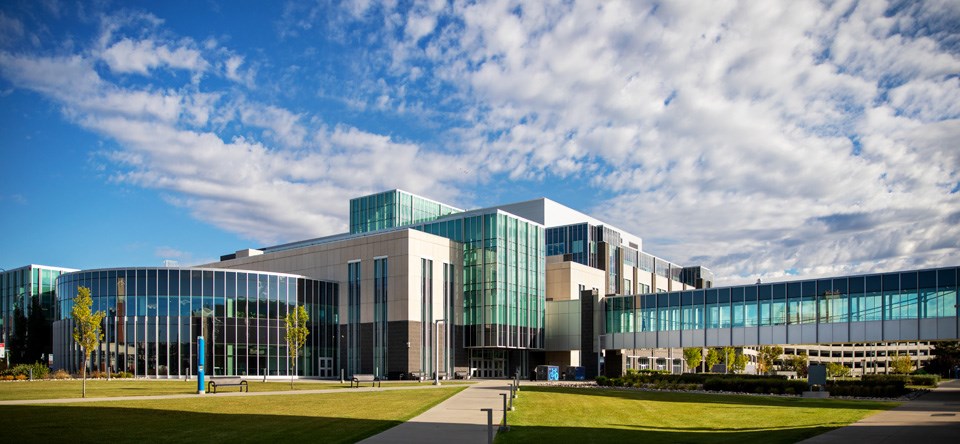Thanks to a gift from the RBC Foundation, the Northern Alberta Institute of Technology (NAIT) might be able to reduce its energy costs while also training students for jobs in a net-zero economy.
The gift of $500,000 over three years contributes to the purchase of solar panels for the NAIT main campus, with students from several programs involved in installation and maintenance.
“From technologists to electricians, we’ll have students doing hands-on work on the solar panels, as part of their post-secondary education,” said Jim Sandercock, Chair, Alternative Energy Technology at NAIT.
According to Sandercock, solar energy will play an important role in Canada’s transition to a net-zero economy, and working with its higher DC voltages and currents requires specific training.
“Although electrical engineers and electricians receive some DC electricity training, most of their studies and work focus on AC electricity,” said Sandercock. “Likewise, they learn about electrical systems as loads, not generators. With this gift and the resulting ability to purchase on-campus solar panels, we can provide important learning to support this growing industry.”
The solar electricians and technicians who will graduate from NAIT in the coming years are just a few examples of the RBC Foundation’s commitment to helping post-secondary institutions build the talent pool needed for a net-zero economy.

Other RBC Foundation gifts, which in total amount to more than $5 million, include supporting electric vehicle technician education at the Southern Alberta Institute of Technology, heritage building conservation at Algonquin College in Ottawa, a sustainable farming leadership program at the University of Manitoba, and the establishment of a new Bachelor of Sustainability and financial management program at the University of Waterloo.
“The energy transition is also a skills transition,” said Andrea Barrack, Senior Vice-President of Corporate Citizenship & ESG at RBC. “Our journey to net-zero relies on the hands and minds of millions of Canadians and will take a concerted effort by those who train and hire the first generation of workers in a green economy.”
According to a report from RBC Thought Leadership and Economics, 3.1 million Canadian jobs will change over the next decade as the climate transition takes shape, and an anticipated 235,000-400,000 new jobs could be added in fields that will demand enhanced green skills. The report also anticipates that 8 of 10 major economic sectors will be affected by the green skills shift.

